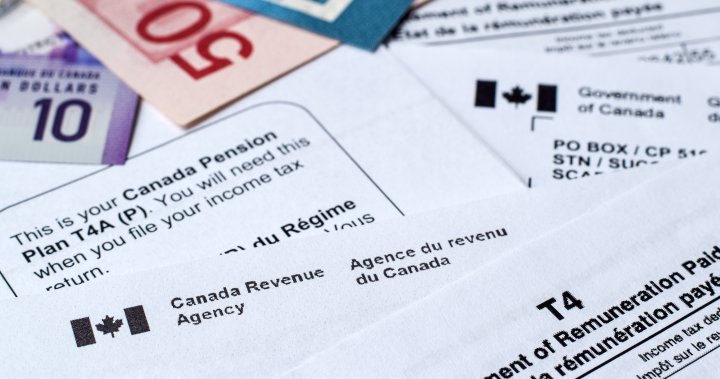Tax returns have already been going out to those receiving them after filing taxes and among those Canadians getting some of their money back, Gen Z are the most likely to invest it, a new survey has found.
The survey, released by TD Bank on Wednesday and conducted by The Harris Poll Canada last month, found 76 per cent of Gen Z Canadians expecting a return this year plan to invest it, much higher than the 60 per cent of millennials and 48 per cent of Gen X who said the same.
According to the survey, among those Canadians expecting a tax return, 53 per cent said they plan to invest it. The survey comes as fears of recession, economic uncertainty and the impact of the U.S.’s trade war continue to cast a stormy forecast for economies around the world.
In response to these concerns, the International Monetary Fund last week warned countries to “get your houses in order.”
Even though there’s a strong inclination to invest, the survey also found just 51 per cent of this group of Gen Z have a tax-free savings account — which are typically easier to access money from in an emergency than investments.
Among those who don’t have one, 30 per cent say they don’t know how TFSAs work.
“A TFSA isn’t just a savings account — it’s a gateway to long-term, tax-free growth,” said Pat Giles, vice-president for saving and investing journey at TD.
Get breaking National news
For news impacting Canada and around the world, sign up for breaking news alerts delivered directly to you when they happen.
“For young Canadians, the earlier you start, the more powerful the impact. Even small, consistent contributions can build serious financial confidence over time, making sure your money is working as hard as you are.”
Amid ongoing cost of living pressures and inflation, the survey also found 90 per cent of Canadians are shifting their financial strategies as a response, with 67 per cent saying it’s impacting how they’ll use their tax refund this year.
A TFSA is a consideration for some Canadians who expect a tax return, with 44 per cent contributing to said account, while 31 per cent will add to a registered retirement savings plan (RRSP).
The way Canadians with a TFSA use the account varies, with 29 per cent using it for both short-term savings and long-term investing.
Not everyone, however, is using that combination, with 28 per cent using it to focus on long-term growth, such as retirement, while 18 per cent are using it solely for short-term savings.
Another 21 per cent are prioritizing tax-efficient investing, the survey showed.
TD Bank notes that while some Canadians plan to invest in their TFSA, there are barriers that exist for those without one, with the survey finding 51 per cent saying they don’t have enough money to contribute.
Another 20 per cent of the total number of Canadians surveyed without a TFSA say they don’t have one due to confusion about how they work, while 14 per cent prefer to put their savings into other methods.
TFSAs typically require just two qualifications: you must be 18 years or older and have a social insurance number.
From there, depending on the institution you open with, you get to invest your money in various options such as mutual funds, stocks and bonds, or even a simple savings deposit.
The main thing to keep in mind with a TFSA, the Government of Canada notes, is the contribution room of the maximum amount you can contribute.
If someone contributes more than the available “room,” they must pay a tax equal to one per cent of the highest excess TFSA in the month for each month that excess remains in your account.
Giles notes that opening a TFSA does not require a big investment, and the money can be withdrawn at any time without facing a tax, unlike RRSPs, for example.
“You don’t need thousands of dollars to get started,” he said. “Even small contributions add up and they grow tax-free.”
© 2025 Global News, a division of Corus Entertainment Inc.

